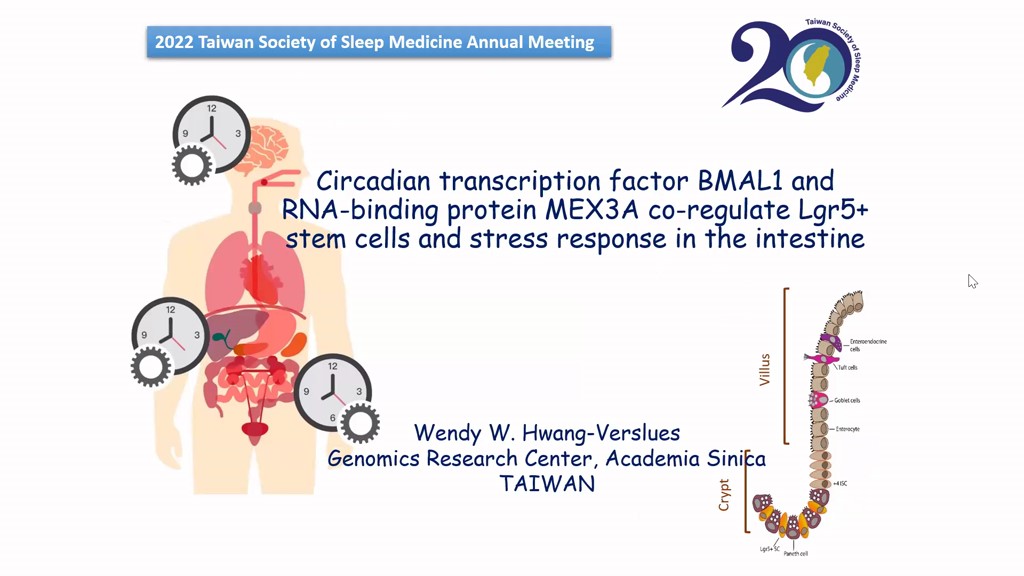
Rapidly dividing intestinal stem cells (ISCs) are sensitive to chemotherapeutic agents, such as 5-fluorouracil (5-FU). Drug delivery at different times of day can change 5-FU toxicity; however, the underlying mechanism is unclear. We found that fast proliferating LGR5+ crypt base columnar (CBC) cells required for intestinal homeostasis are controlled by the circadian clock transcription factor BMAL1 and the BMAL1-regulated RNA-binding protein MEX3A. BMAL1 directly activates Lgr5 transcription and MEX3A post-transcriptionally controls Lgr5 mRNA stability. Timing of 5-FU delivery when crypt cells had high BMAL1 and low Lgr5 protected ISCs from apoptosis. BMAL1 is critical for intestinal homeostasis and stress response as Bmal1 knockout in LGR5+ CBCs reduced MEX3A expression, decreased CBC numbers, and made ISCs more sensitive to 5-FU-induced apoptosis. Together, these findings demonstrate the central role of BMAL1 in ISC homeostasis and provide a biological explanation for chronotherapeutic chemoprotection.